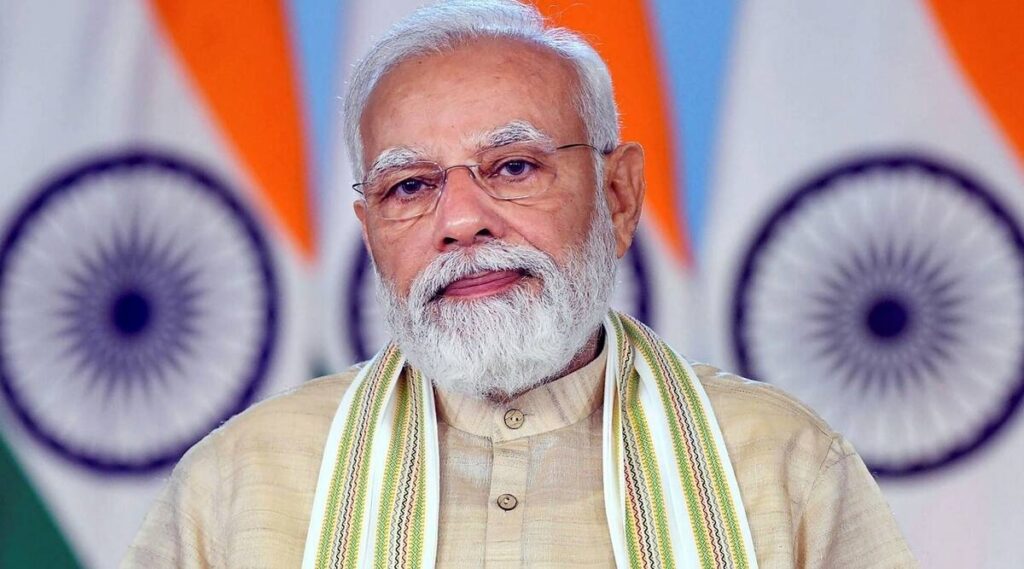Addressing leaders at the Voice of Global South Summit, the Prime Minister spelt out the challenges: “We have turned the page on another difficult year that saw war, conflict, terrorism and geopolitical tensions; rising food, fertiliser and fuel prices; climate change-driven natural disasters; and, lasting economic impact of the Covid pandemic.”
Underlining that the “world is in a state of crisis”, Prime Minister Narendra Modi told leaders of developing countries Thursday that “your voice is India’s voice” and “your priorities are India’s priorities”.
Addressing leaders at the Voice of Global South Summit, the Prime Minister spelt out the challenges: “We have turned the page on another difficult year that saw war, conflict, terrorism and geopolitical tensions; rising food, fertiliser and fuel prices; climate change-driven natural disasters; and, lasting economic impact of the Covid pandemic.”
“It is clear the world is in a state of crisis. It is difficult to predict how long this state of instability will last,” he said at the inaugural session of the two-day virtual summit organised by India.
The idea behind the summit is that India will work to ensure that inputs generated from partner countries in the Voice of Global South Summit deliberations will be pushed forward at the G20 summit which will be hosted by India later this year. India’s ongoing Presidency of the G20, officials said, provides a special and strong opportunity for countries whose voice often goes unheard.
Making a pitch for the Global South to play a role in shaping the world order, the Prime Minister said, “We, the Global South, have the largest stakes in the future. Three-fourths of humanity lives in our countries. We should also have an equivalent voice. Hence, as the eight-decade-old model of global governance slowly changes, we should try to shape the emerging order.”
Leaders of several countries including Bangladesh, Thailand, Uzbekistan, Vietnam, Cambodia, Guyana, Mozambique, Mongolia and Senegal were among those who attended the leaders’ session.
Stating that most of the global challenges have not been created by the Global South, Modi said, “But they affect us more. We have seen this in the impacts of Covid pandemic, climate change, terrorism and even the Ukraine conflict. The search for solutions also does not factor in our role or our voice.”
In this context, he gave the mantra of ‘Respond, Recognize, Respect and Reform’.
“To re-energise the world, we should together call for a global agenda of ‘Respond, Recognize, Respect and Reform’,” he said.
According to the Prime Minister, the agenda should be:
* Respond to the priorities of the Global South by framing an inclusive and balanced international agenda.
* Recognize that the principle of ‘Common but Differentiated Responsibilities’ applies to all global challenges.
* Respect sovereignty of all nations, rule of law and peaceful resolution of differences and disputes; and,
* Reform international institutions, including the United Nations, to make them more relevant.
He said India has always shared its developmental experience with “our brothers of the Global South”.
“Our development partnerships cover all geographies and diverse sectors. We supplied medicines and vaccines to over 100 countries during the pandemic. India has always stood for a greater role for developing countries in determining our common future.”
“It is natural that our aim is to amplify the Voice of Global South. For our G20 Presidency, we have picked the theme of – ‘One Earth, One Family, One Future’. This is in line with our civilisational ethos. We believe the path to realise ‘oneness’ is through human-centric development. People of the Global South should no longer be excluded from the fruits of development. Together, we must attempt to redesign global political and financial governance. This can remove inequalities, enlarge opportunities, support growth and spread progress and prosperity.”
Despite the challenges the developing world faces, he said, “I remain optimistic that our time is coming. The need of the hour is to identify simple, scalable and sustainable solutions that can transform our societies and economies. With such an approach, we shall overcome the difficult challenges – whether it is poverty, universal healthcare or building human capacities. In the last century, we supported each other in our fight against foreign rule. We can do it again in this century, to create a new world order that will ensure the welfare of our citizens.”
“As far as India is concerned, your voice is India’s voice. Your priorities are India’s priorities,” he said.
External Affairs Minister S Jaishankar, who addressed the Foreign Ministers’ session, outlined key takeaways. “We have to fully confront the challenge of overcoming economic headwinds, especially debt and recovery. Ensuring energy, food and fertiliser security must be the immediate priority… handle the still unfolding impact of the Covid pandemic, deal with the damage caused by conflict, terrorism and violence,” he said.

